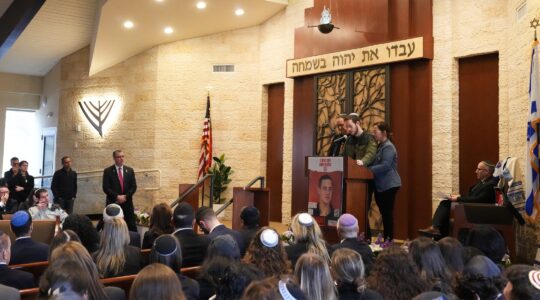Intermarried couples married by a rabbi or cantor have higher levels of Jewish involvement, a new study found.
The National Center for Jewish Policy Studies, an affiliate of Hebrew College in Newton Centre, Mass., is about to release its study of 149 intermarried couples in Boston, Atlanta, St. Louis and San Francisco.
The study found that 87 percent of those intermarried couples who were married by Jewish clergy later raised their children as “Jewish only,” compared to 63 percent of the couples married by co-officiants, non-Jewish clergy or in secular ceremonies. Also, 50 percent of those married by Jewish clergy said it was very important that their grandchildren be Jewish, compared to 18 percent married by other officials.
Even more striking is the correlation between rabbinic officiation and later avoidance of Christian behaviors. Just 2 percent of those married only by a rabbi now belong to a church.
Arnold Dashefsky, the University of Connecticut sociology professor who headed the research team, says the findings do not prove causality. There is no evidence, he stresses, that if an intermarried couple is married by a rabbi, the family will become “more Jewish.”
Choosing such rabbinic officiation, however, is clearly “a marker along the couple’s Jewish journey,” Dashefsky said.
The study did not use a random sample. Many respondents were affiliated with Jewish or interfaith organizations, and the Jewish partners in the study have more Jewish background than samples used in most other studies.
Still, researchers say the findings are useful to Jewish institutions and communal leaders seeking ways to engage the most Jewishly interested intermarried families in their midst.
The researchers plan to follow these families for several years to see how their Jewish behaviors evolve.
JTA has documented Jewish history in real-time for over a century. Keep our journalism strong by joining us in supporting independent, award-winning reporting.





